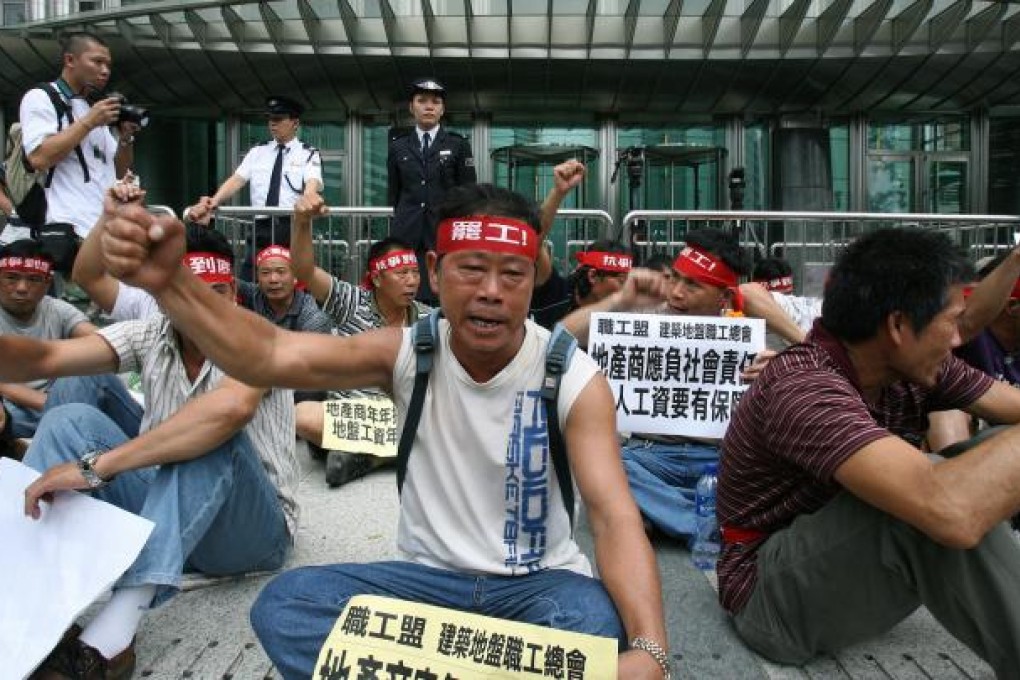Dockers' strike falls flat over unions' lack of unity
Differences between the two big groups hinder dockers from getting their pay rise

As the strike drags on at Kwai Tsing, it appears the dockers are struggling to get union support for their fight for more pay - revealing the fractured state of the city's two key labour rights groups.

This, they say, was demonstrated by the FTU's reluctance to back the dockers' strike because it was organised by the CTU.
The FTU was set up in 1948 and is an umbrella group for 248 smaller unions with a combined membership of about 370,000 workers. The CTU was formed more recently - in 1990 - and has about 80 unions under its banner, together representing about 170,000 workers.
Of the city's working population, estimated at about 3.8 million, approximately one in every six workers belongs to at least one of the two unions. This compares with the United States, where only one in 10 workers belonged to a union last year.
"One problem is that the FTU and CTU are seldom united to fight for labour rights," said Dr Chung Kim-wah, assistant professor in the Polytechnic University's department of applied social sciences.
"And because the FTU leaders have a close relationship with the pro-Beijing camp, any protest is usually kept as tame as possible. The CTU alone isn't powerful enough."